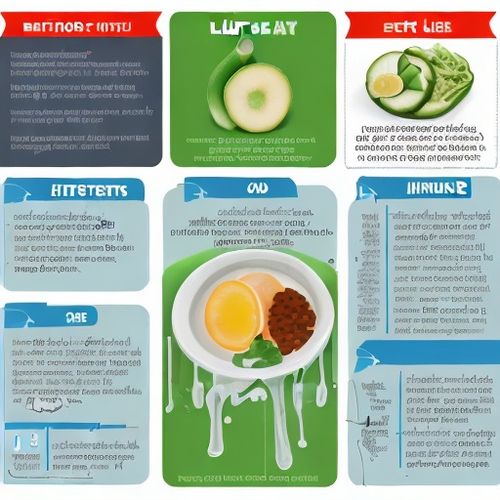The pursuit of optimal health and metabolic efficiency has led many to explore the nuances of nutritional ketosis, a state where the body shifts from relying on glucose to burning fat for fuel. At the heart of this metabolic transformation lies the measurement of blood ketone levels, a critical biomarker for those adhering to a ketogenic diet. Understanding these levels—how they fluctuate, what they signify, and how to interpret them—can make the difference between success and frustration in one’s ketogenic journey.
Blood ketones, primarily beta-hydroxybutyrate (BHB), serve as the gold standard for assessing nutritional ketosis. Unlike urine ketone strips, which measure acetoacetate and become less reliable over time, blood ketone meters provide a precise snapshot of your metabolic state. For those committed to the ketogenic lifestyle, maintaining blood BHB levels between 0.5 and 3.0 mmol/L is often cited as the sweet spot for nutritional ketosis. However, these numbers aren’t static; they ebb and flow based on factors like diet, exercise, sleep, and even stress.
The relationship between blood ketone levels and dietary choices is complex yet fascinating. Consuming high amounts of fats while restricting carbohydrates below 50 grams per day typically induces ketosis, but individual responses vary widely. Some people effortlessly achieve ketosis with moderate fat intake, while others must meticulously track macros and avoid even hidden carbs. The timing of meals also plays a role—intermittent fasting, for instance, can accelerate ketone production by depleting glycogen stores faster than a standard eating window.
Exercise is another powerful modulator of blood ketones. While intense anaerobic workouts may temporarily suppress ketosis due to glycogen utilization, aerobic activities like walking or cycling at a moderate pace can enhance fat adaptation and elevate ketone levels. The interplay between physical activity and ketosis underscores the importance of tailoring workouts to align with one’s metabolic goals. For those seeking deeper ketosis, incorporating low-intensity steady-state (LISS) cardio or post-workout fasting may prove beneficial.
Sleep and stress, often overlooked, exert profound effects on blood ketone concentrations. Poor sleep or chronic stress elevates cortisol, a hormone that can spike blood glucose and dampen ketone production. Conversely, prioritizing restorative sleep and stress-management techniques like meditation or deep breathing can create a more favorable environment for sustained ketosis. The mind-body connection here is undeniable—mental well-being and metabolic health are inextricably linked.
Beyond the basics of diet and lifestyle, exogenous ketones and medium-chain triglycerides (MCTs) have gained popularity as tools to manipulate blood ketone levels. While exogenous ketones can provide a quick surge in BHB, they don’t replace the metabolic benefits of endogenous ketone production. MCT oil, on the other hand, is rapidly converted into ketones by the liver and can serve as a practical supplement for those struggling to reach optimal levels through food alone. Yet, reliance on these aids should never overshadow the importance of whole-food nutrition and metabolic flexibility.
Interpreting blood ketone readings requires context. A single measurement is merely a data point; trends over time reveal far more about metabolic health. For instance, a downward trend in ketones despite strict adherence to the diet could indicate improved mitochondrial efficiency—the body becoming adept at utilizing ketones without excess circulating levels. Conversely, unusually high ketones (above 3.0 mmol/L) without calorie restriction might warrant a closer look at insulin sensitivity or potential underlying health issues.
The ketogenic diet isn’t a one-size-fits-all approach, and neither are blood ketone targets. Athletes may thrive at the lower end of the ketosis spectrum, while individuals with neurological conditions might aim for higher levels. Pregnant women, diabetics, and those on certain medications should approach ketone monitoring with additional caution and professional guidance. Personalized experimentation—tracking how specific foods, activities, and stressors influence your biomarkers—is key to harnessing the full potential of nutritional ketosis.
As research into ketogenic diets and blood ketone dynamics advances, new insights continue to emerge. What remains clear is that ketone levels are both an art and a science, reflecting the intricate dance between biochemistry and individuality. Whether you’re using ketosis for weight loss, mental clarity, or metabolic therapy, understanding your blood ketone data empowers you to make informed decisions and refine your approach for long-term success.

By Sarah Davis/May 19, 2025

By Natalie Campbell/May 19, 2025

By George Bailey/May 19, 2025

By Lily Simpson/May 19, 2025

By David Anderson/May 19, 2025

By Olivia Reed/May 19, 2025

By Amanda Phillips/May 19, 2025

By Sophia Lewis/May 19, 2025

By Olivia Reed/May 19, 2025

By Emily Johnson/May 19, 2025

By John Smith/May 18, 2025

By Eric Ward/May 18, 2025

By Jessica Lee/May 18, 2025

By Jessica Lee/May 18, 2025

By Sophia Lewis/May 18, 2025

By Rebecca Stewart/May 18, 2025

By Emily Johnson/May 18, 2025

By Rebecca Stewart/May 18, 2025

By Megan Clark/May 18, 2025

By Megan Clark/May 18, 2025